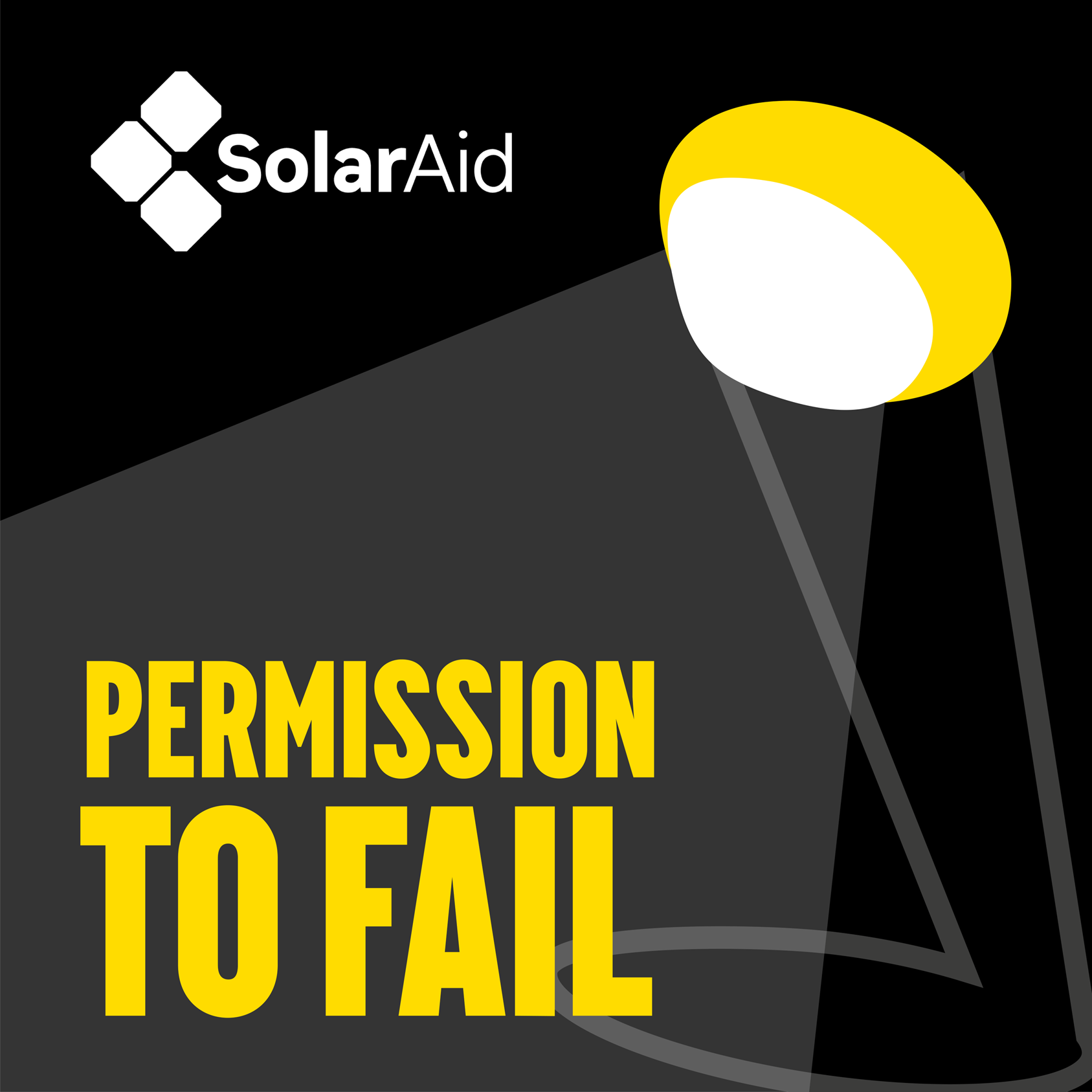Domino effects and rural repairs
Description
What can failure, learning and success look like when designing a new programme? Do we, as development organisations recognise the domino effects that our well meaning interventions can have on rural communities and the environment? And when recognising these, how can we turn them into opportunities? This is a case study of that.
In this episode host Kirsty Adams, together with Fred Mwale (Programmes Manager, SolarAid Zambia) and Courtney Paisley (consultant with SolarAid) explore the topic of electronic waste, repair and how the small electronics that make up solar lights can be turned into opportunities for circular economy and give second life to life changing solar lights.
Electronic waste is the fastest growing waste stream in the world. Recognising that they had distributed over 2 million solar lights across rural areas in sub-Saharan Africa, SolarAid started asking themselves what happens to their solar lights once they stop working. This eventually led them to launch their solar light repair pilot in Zambia, which has seen carrying out research in rural areas, launching a repair app, and training and upskilling local Repair Technicians across the country. It has given second life to solar lights across rural areas, while also limiting electronic waste. But the journey there was not straightforward - this episode, is the tale of that.
Guests’ Bios
Fred Mwale has been SolarAid Zambia’s Programmes Manager since 2020. He has more than 7 years of experience in rural development, specializing in renewable energy and agriculture. Fred has used that experience to help in the provision of alternative livelihoods, access to energy, and food systems, and to cushion the impact of climate change through various innovative models. His experience in the private sector has seen him work with donors from GIZ (German government), FCDO (UK government), and USAID. Fred has a Bachelor of Education in Environmental Education from the University of Zambia.
Courtney Paisley has nearly two decades of experience in the development field, honing her expertise across a range of sectors from agriculture, natural resource management, renewable energy access, the circular economy, youth employment and conservation. During her extensive career, Courtney spent 8 years in a global role as the director of a youth network in agriculture and rural development at the UN Food and Agriculture. Nevertheless, the majority of her career has been focused on the African continent, in Kenya, Tanzania and Zambia, where she currently works with the Frankfurt Zoological Society.
Courtney thrives in environments that prioritise holistic and multi-disciplinary solutions to addressing environmental challenges and sustainable rural development - a field she has dedicated her career to. She upholds sustainability principles, both professionally and personally, demonstrating her commitment to making a lasting positive impact on the world.
________________________
Find out more about SolarAid here.
Learn how you can support SolarAid here.
________________________
Find out more about SolarAid here.
Learn how you can support SolarAid here.
LinkedIn
Twitter
a href="https://www.instagram.com/solaraid/" rel="noopener...
More Episodes
In this last episode of Permission to Fail we ask ourselves - what now? Over the past five episodes we’ve been on a journey together, exploring the topic of failure and learning. We’ve listened to anecdotes from the people who have been there from the start, explored stories of both difficult...
Published 05/16/24
Published 05/16/24
Images and stories are fundamental for charities to spread awareness about the problem they are trying to solve, to harness support and show impact of the funds they are receiving. These images and stories are being used for campaigning, fundraising and advocacy. But with charities operating in...
Published 09/12/23


